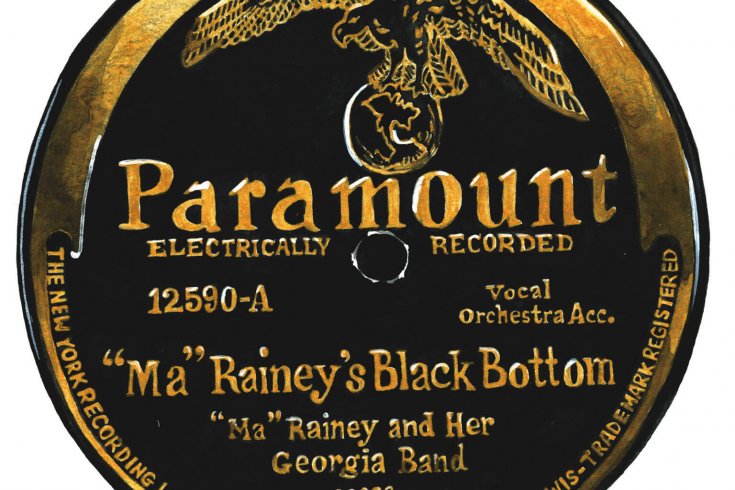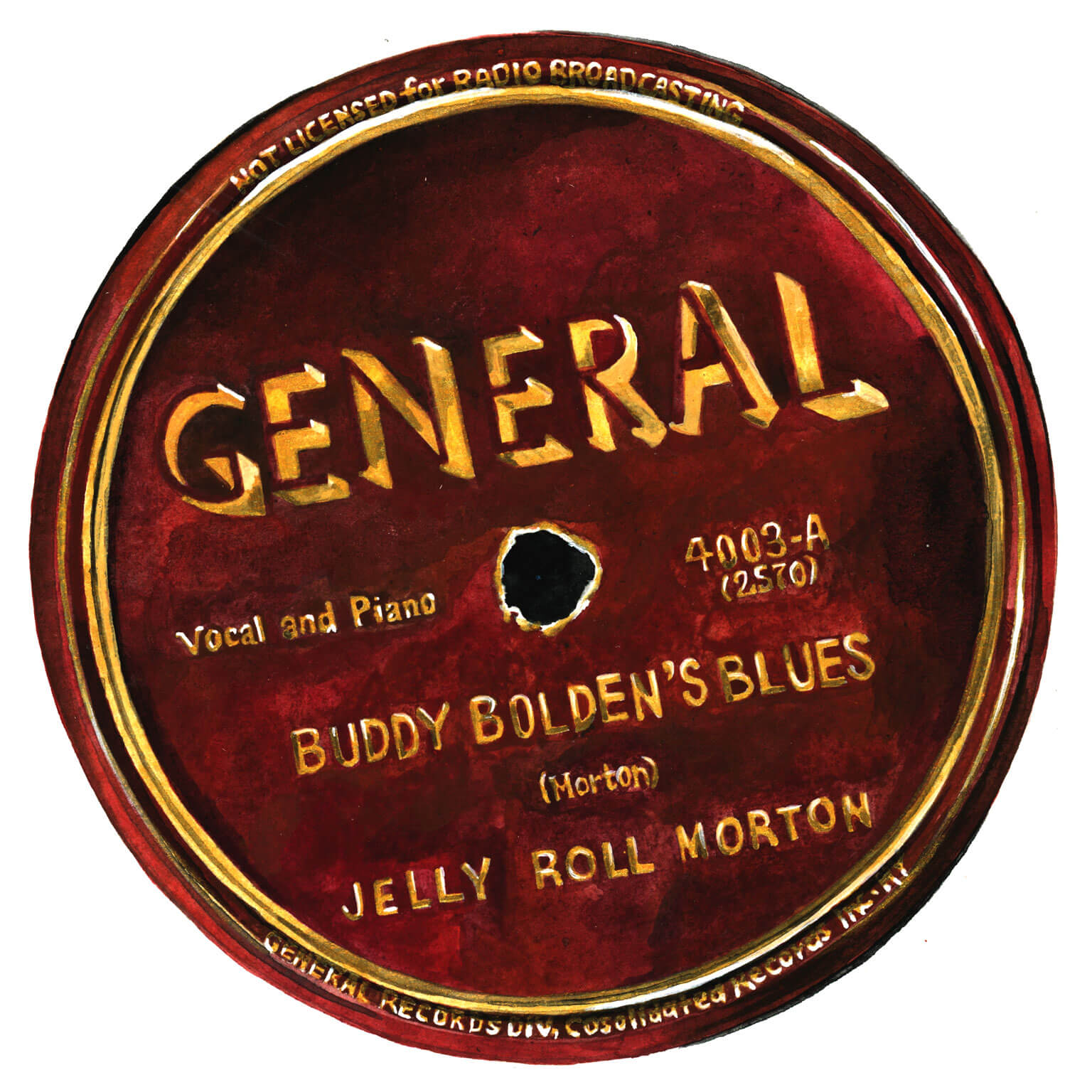
Jimbo Palmer and Rob Forde were both fourteen, with Jimbo some months older than Rob. Jimbo’s mother was warm and friendly but ineffectual. She remonstrated by saying in a trailing-off voice, Now, James . . . or Really, James . . . . She made nice sandwiches. Jimbo was quite fond of her but said that he’d only give it two or three more years before they carted her off to the loony bin. She washed things a lot in the washing machine and her blonde hair clung darkened to her face but she was still elegant and she often smelled of TCP and her high cheekbones gave her a gaunt beauty, and, though mad, had, Rob thought, distinct sexual possibilities. Had it not been for, being realistic about it, had it not been for her evangelical fervour, the spirit moving in her to request casual callers, the grocer’s boy, the postman with a parcel, to kneel with her in prayer.
Jimbo’s stepfather, a retired army officer older than Jimbo’s mother, was a bristly, abrupt, bark-y man, uncommunicative, wrapped in a silence that spread uncomfortableness around him. He had a smudge moustache and kept a Webley revolver and a box of bullets in his socks-and-underwear drawer. When not wearing a regimental tie, he affected a foulard.
The Major’s breakfast never varied: a three and three-quarter minute boiled egg served in a brightly coloured egg cup shaped like a cockerel, a slice of Hovis toast with unsalted butter accompanied by a small cut-glass dish of jam he sometimes called “preserve” and sometimes “confiture.” The cut-glass dish sat on a miniature silver salver-thing on which also lay a special silver spoon, smaller than a teaspoon, for spooning up a dollop of jam onto the Major’s plate but why he couldn’t just—
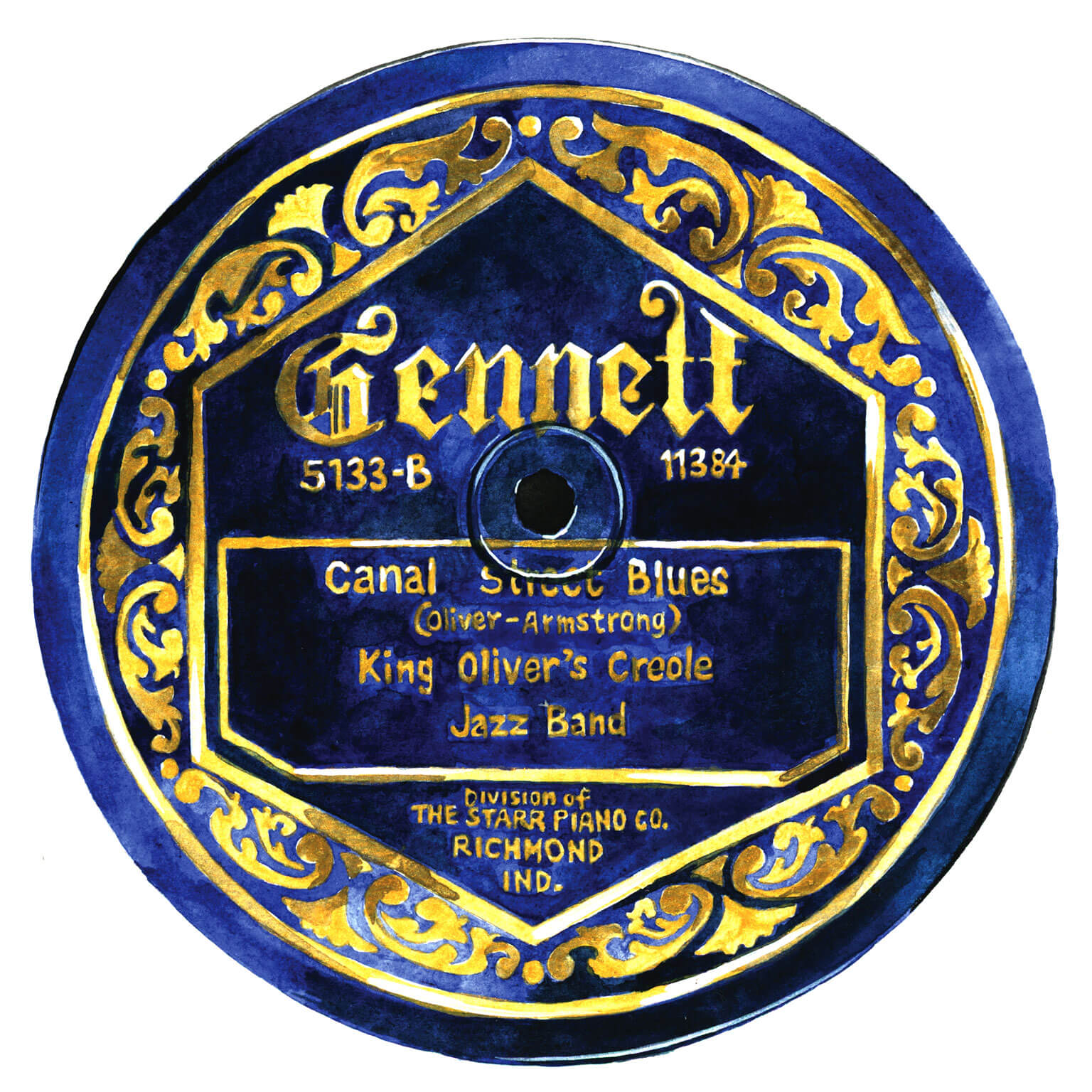
“I view hot toast,” he said, in one of his rare communications, pointing to the solitary Hovis slice lodged cold in the silver toast rack, “as offensively American.”
He had once lowered the pink barricade of the Financial Times and tapped his wristwatch’s leather strap and said, “Camel.”
After breakfast, he and his attaché case departed for the City.
Jimbo referred to him as Double-U or Dub, short for Wind-Up Man. In their flights of invention, their cherished embroideries, the Key in the centre of the Major’s back had a milled shaft . . .
. . . No, no, not milled, you total ape . . .
. . . baboon’s arse . . .
it’s knurled, smegma, knurled . . .
They shared their pleasure in his peculiarities while in his presence by rubbing thumb over forefinger in a gesture of watch winding. Both boys thought of him as an escapee from The Goon Show, an avatar of Major Bloodnok. No more curried eggs for me! they cried. Quick, nurse! they called. The screens!
Jimbo had worked out from the hallmarks—he had a handbook of them—that the toast rack had been made in London in 1921; he was interested in such things, and his interest was expanding into Sheffield Plate, pewter, and Britannia metal. He had found a loupe in a junk shop.
“You say, ‘I wonder when it dates from?’ and I’ll say, ‘Pass me my loupe.’”
The Major had had Jimbo sent away when he was twelve, before he and Rob had met, to a military-flavoured boarding school to cure what he called Jimbo’s softness; Jimbo had overheard “mummy’s boy” and “lack of manliness” and the weeping. He had been expelled after the first term and said only that the letter had described him as “a malign influence.” What he had been expected to learn was uninteresting and the people had been utterly preposterous.
“Utterly,” he repeated.
“But what did you do that was malignant?”
They loved the word.
“I committed infractions,” said Jimbo, “and showed no remorse.”
“What infractions?”
“Mainly, I fomented.”
“What’s that mean?”
“OED,” said Jimbo, tapping his finger three times on the table. “The SOED, old chap, old boy, old sport, old fellow-my-lad. What? What?”
The Major’s decanters were kept on the sideboard in the dining room in a mahogany-and-brass cage-thing. The decanters, visible inside the spindles, had silver chains round their necks from which hung little oval silver plaques: Whisky, Sherry, Brandy, Gin.
“It prevents theft by the servants,” the Major had once remarked as he was unlocking it.
“We haven’t got any servants,” said Jimbo.
“What?” said the Major. “What?”
Which was his usual response to any reply short of complete agreement or grovelling.
“I said,” said Jimbo, “we haven’t got—”
“Don’t say ‘haven’t got,’” said the Major. “It is both redundant and ill bred. ‘Haven’t’ will suffice.”
“Righto,” said Jimbo.
Rather dangerously, Rob thought.
“This is Victorian. A valuable antique,” said the Major, putting the little brass key back in his pocket.
“Called?”
He stared inquiry at them.
“Mmmm?”
Rob and Jimbo looked at each other.
“No?” said the Major.
Jimbo shrugged.
“A tantalus. Called a tantalus.”
His eyes began to wander as if seeking a way out of this unwonted intimacy.
“Remember that,” he repeated. “Tantalus.”
Did the raspy thing with his thumbnail against his moustache.
“It will stand you in good stead.”
In that summer of their fourteenth year, Jimbo was hankering after a languorous smoking jacket; it was the contrasting lapels that so seduced him. He realized that he was too young to wear one but vowed that when he had escaped to Oxford it would be one of the first things he would acquire after he had secured a print by John Piper he’d long desired, a print in reds and black of the edge of a church facade and tombstones, some aslant.
Rob luxuriated in the fantasy of an amiable father taking him to a Paris maison de passe—red plush, divans, mirrors, gilt—where the madame put him in the hands of a lissome . . . but glum thought his real father, remote in his black dickie with its white attached clerical collar, the Sunday Geneva bands, the dickie looking in certain lights as if it were turning dull green with age.
He was reading Huysmans’s À Rebours and not at all sure what to make of it. Though he particularly liked the tortoise.
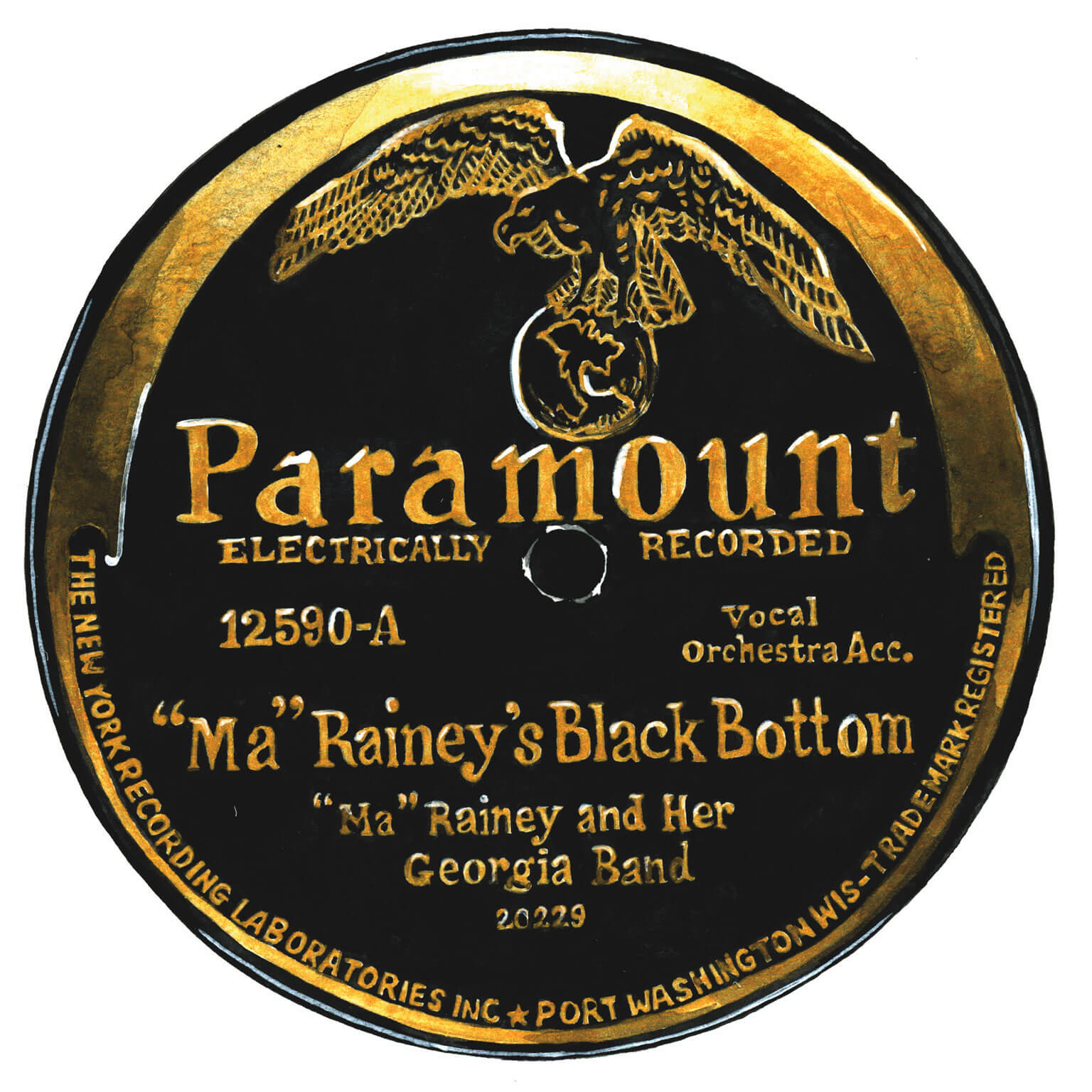
In that summer of their fourteenth year, they rootled in junk shops for amber cigarette holders and cigarette cases for their cigarillos and cheroots. Jimbo insisted that kitchen matches were simply classier than Ronson lighters. “Swan Vestas. The feel of wooden matches,” he said. “Inhale that sulphur!”
They stockpiled Skira art books—Klee, Mondrian, Picasso, Toulouse-Lautrec, Miró. Touching the Skira covers with his fingertips, “buckram,” whispered Jimbo, “buckram.” They devoured Faber and Faber monographs on Paul Nash, Ivon Hitchens, Stanley Spencer, Walter Sickert, Victor Pasmore. Rob found a book of George Grosz drawings called Ecce Homo to which he returned again and again without knowing quite why.
In that summer of their fourteenth year, when Jimbo’s mother and stepfather had gone away for two days to visit “Maid” Marian, his stepfather’s vinegary spinster sister—“barren,” Jimbo said, her house astringent with furniture polish and ammonia, “every surface frothing with crinoline figurines”—they shot the rear wall of the wooden tool shed at the bottom of the long garden six times with the Major’s Webley and rubbed over the startling scars with mud.
In that summer of their fourteenth year, they encountered Teresa.
Teresa was Carol’s penfriend from Yugoslavia. Carol worked at the record shop on Saturdays, and Teresa had come over that summer for a holiday. She was quite beautiful and her English was beautifully broken. Both Rob and Jimbo were attracted. They bumped into the two girls one day in the High Street and Teresa was wearing a singlet-thing that sometimes revealed her armpits. In these armpits were tufts of brown hair. Rob was both attracted by these glimpses and not attracted; he had never seen such a thing before; it made him uneasy. Jimbo said that he’d like to put his mouth to her armpit, enclose all the hair, and suck it slowly, sweat and all. It was this decisive and shining imagination in Jimbo that Rob adored.
But Jimbo’s most lasting gift to Rob was jazz.
It all started, rather ridiculously, with a chance record by a cheerful, foot-tappy band called Bob Crosby and the Bobcats. It was the first jazz record they had heard. In later years, Rob was unable to remember how the record had come to Jimbo. Possibly through Carol. Nor could he remember what two tunes it played. It was a 78 rpm acetate record in a plain brown paper sleeve. He seemed vaguely to remember uptempo vulgarity, trombone rasps, circus noise; “Tiger Rag,” possibly? And what company pressed it? Brunswick? London? Victor? Decca? Vocalion? All he really remembered in later years was that the label at the record’s centre was black, the printing gold.
Being the boys they were, but wished to become, they were soon swept up into the traditional jazz revival.
Jimbo had said one day, “The art school people at the record shop, they’re always talking about people we don’t know about.”
The art school students were that much older so the boys couldn’t talk to them and the girls were haughty but the boys admired them from a distance. The students were a connection of a sort to a world the boys longed to enter, the Skira world, the world of the Faber monographs, worlds far distant from the world of privet hedges and mown lawns. The boys sat near the students in the café two doors down from the record shop, the café with an espresso machine that was crowned by an eagle in gold. They took note of the titles of books the students dumped on tables: The Outsider, The Theory of the Leisure Class, Slan, Foundation, The Fountainhead.
They agreed that they sort of liked Amos Tutuola’s The Palm-Wine Drinkard.
The new young woman at the public library procured these titles for them; she was friendly and chatted with them and had, Rob thought, distinct sexual possibilities.
“You know,” whispered Jimbo, “this”—covert gesture toward the table of students—“might just be it.”
“What? What might be what?”
“What they’re talking about.”
They eavesdropped.
Their heads soon began to fill with dreams of Chicago, New York, St. Louis, New Orleans—cities inhabited by fabulous personages: Kids, Earls, Dukes, Counts, and Kings.
They overheard the students talking: Buddy Bolden, Freddie Keppard and the Olympia Orchestra, King Oliver’s Creole Jazz Band, Kid Ory, the New Orleans Rhythm Kings . . .
They overheard: Louis Armstrong and His Hot Five, Louis Armstrong and His Hot Seven, Jelly Roll Morton’s Red Hot Peppers . . .
They overheard: the Royal Garden Café, Earl Hines, the Lincoln Gardens dance hall, Bessie Smith, Zutty Singleton, Baby Dodds, Ma Rainey, Oran “Hot Lips” Page . . .
They overheard: Savoy Ballroom Five, Bertha “Chippie” Hill, Sidney Bechet, Jack Teagarden, George Mitchell, Bubber Miley, Ward Pinkett, Bunk Johnson . . .
And then they found the music.
And were ravished.
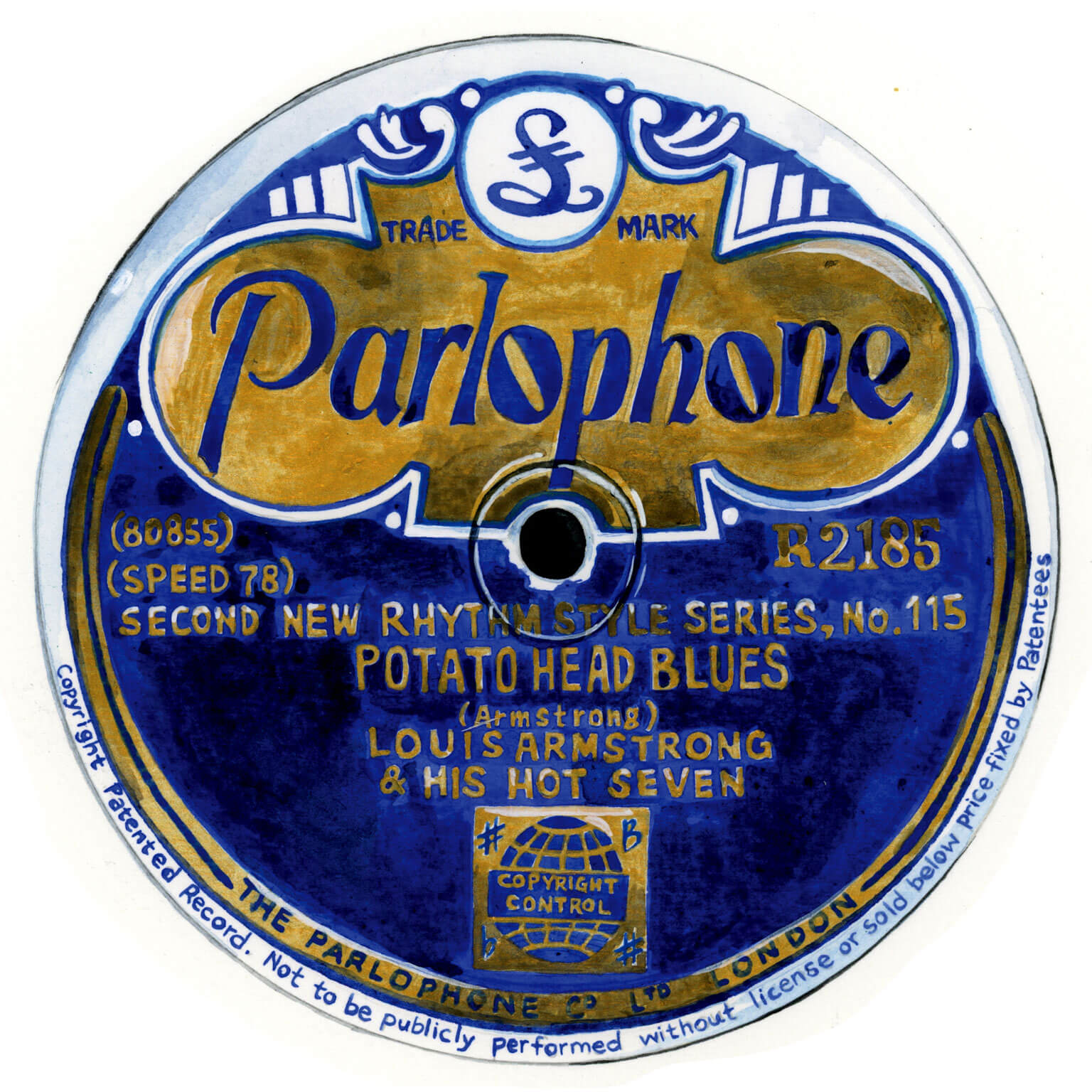
The school terms ground on, a ludicrous background to their new passion. History unreeled: the Tudors, the Stuarts, the Hanoverians, Sir Robert Walpole, Farmer George, the loss of the Colonies, Whig, Tory, the spinning jenny, Manchester, rotten boroughs, the French Revolution, Nelson, Napoleon, the Tolpuddle Martyrs. Rob’s history teacher had a single false upper incisor on a plate which he jiggled out with his tongue and extruded onto his lower lip; it sat there while he listened to halting recapitulations.
They listened to Freddie Keppard playing “Stock Yards Strut” and “Salty Dog.” They were enraptured by the King Oliver recordings for Gennett in April 1923, “Canal Street Blues,” “Snake Rag,” Oliver’s famous three-chorus solo on “Dippermouth Blues,” Louis Armstrong’s playing on second cornet in “Chimes Blues,” Armstrong’s plaintive, subtle phrasing behind the majesty of Bessie Smith.
They read and reread the few works of jazz hagiography that existed—Shining Trumpets by Rudi Blesh, Mister Jelly Roll by Alan Lomax, whatever scraps of information were provided by Melody Maker.
They absorbed arcane knowledge.
That Kid Ory was born in LaPlace, Louisiana.
That Bessie Smith’s husband’s name was Jack Gee.
That Bunk Johnson was rediscovered in the parish of New Iberia, Louisiana.
The American language invaded them: bills, ten-spots, nickels and dimes, grits and collard greens, reefers, vipers . . . That Bunk Johnson made his comeback when some musicians provided him with “store-bought teeth.”
Store-bought!
That Jelly Roll Morton was named in early documents Ferdinand La Menthe; that the family name was La Mothe; that he was baptized Lemott but took the name Morton from a stepfather whose name was actually Mouton.
That Morton’s nom de guerre meant “womanizer.”
jelly roll n. (US Black) [late 19c. +] a lover. [Standard Am. Eng., a doughnut, which has a hole at its centre.]
School offered them the Rhine, the Rhone, the Pripyat Marshes, steppe and taiga, loess, seas various—Caspian, Baltic, Beaufort, Azov, Dead—while in their heads and hearts sang Armstrong’s revolutionary stop-time choruses in “Potato Head Blues,” the dramatic descents of “Gully Low Blues,” the cascading phrasing on “West End Blues,” “Hotter than That,” and “Big Butter and Egg Man”; in their heads and hearts sang what Jelly Roll called “the Spanish tinge,” tango and Latin rhythms in “New Orleans Joys,” “The Crave,” “Mamanita.” They took joy in what Morton called in the Red Hot Peppers recordings “the breaks,” those two-bar suspensions of the beat in the Victor recordings of 1926–28, “Dead Man Blues,” “Black Bottom Stomp,” “The Pearls”; took reverential joy in the intense, almost unbearable beauty of “Smoke House Blues” in the middle of which a jubilant, exultant Morton arrests his delicate solo and cries into the magical silence:
Oh!
Mister Jelly!
The approach of the Ordinary Level Examinations caused hysteria in both households. Study, they were urged, study. Rob’s mother bought him glucose tablets for energy from Boots the Chemist. Jimbo discovered the word frottage. Rob’s French teacher was from Aberystwyth and both boys amused themselves by simple exchanges in a French inflected with the singsong rhythms of Welsh English. At the 10:15 a.m. recess, school milk was distributed and currant buns were available for purchase. Reading Victorian pornography, Rob discovered the word gamahuche. Study, they were urged, study. Rob was beginning to tire of Jimbo’s Oscar Wilde quotations. Work, Jimbo said, is the curse of the drinking classes.
For lack of conclusive evidence, the allegations against Jimbo in the matter of the conflagration in the metalwork shop were allowed to lapse; he maintained a posture of baffled silence; his headmaster was brought to concede that we lived in an imperfect world in which certainty . . . certainty beyond even a shadow of doubt . . . the Major paid to replace the other boy’s blazer and stricter standards of supervision in the annealing of copper were instituted.
“I turned,” said Jimbo, “to answer a question while holding the roaring-thing and flame inadvertently played upon him.”
Rob thought this deadpan explanation verged deliciously on dumb insolence.
All authority, said Jimbo, is quite degrading. It degrades those who exercise it, and degrades those over whom it is exercised.
Mr. Fontane, Rob’s English teacher that year, was widely believed to be shell-shocked; he wore a toupée and tortoiseshell glasses and sometimes forgot to remove his bicycle clips. One memorable morning, he jammed his foot into the metal wastepaper basket and stumped up and down the front of the classroom clanging and clanking in the silence and growling through clenched teeth and distorted jaw, Well, sir! Well?
He conducted daily exercises in dictation, speaking slowly and distinctly to the windowpane, his breath fogging it while he enunciated comma, colon, blah blah, semicolon, blah blah, exclamation mark, paragraph, period. After the passage of dictation was concluded, the boys exchanged papers and compared the copies in front of them with the distributed copies of the mimeographed text. The sum of mistakes was then calculated: minus one for errors in punctuation, minus two for omissions, minus three for errors in spelling. This figure was subtracted from twenty and the total circled beneath the pupil’s name and the papers again traded. The papers were then handed forward until they all reached the boys in the front desks and were then all gathered up by Mr. Fontane and secured under a spring clip in an immense binder. This activity took up nearly half the lesson’s allotted time.
Dictation was followed by silent study of the mimeographed passage for précis, the actual writing of which was set daily for homework. When the bell rang, and as the boys stood, gathered books, and began to file out, Mr. Fontane offered final nuggets, crying out almost gaily:
Non-restrictive clauses are our quarry!
On Friday evenings or Saturdays, the boys, pleading mental exhaustion and the need for restoration, started getting the train up to Victoria to lose themselves in the hot pleasures of the jam-packed club at 100 Oxford Street, home base of Humphrey Lyttelton and his band. From time to time, other bands took the stage: Mick Mulligan and his Magnolia Jazz Band with George Melly, Mike Daniels’ Delta Jazzmen, Alex Welsh, Ken Colyer, Chris Barber with Ottilie Patterson. Sometimes they went to the Six Bells in Chelsea to hear Alex Welsh, sometimes to Pizza Express in Dean Street. In sundry afternoon cafés with loud espresso machines and tired cheese rolls under plastic domes on the counter, the pale yellow rat-trap cheese sweating under wilted lettuce, they listened condescendingly to Lonnie Donegan’s mongrel skiffle.
“Christ!” said Rob. “Thimbles! Washboards and thimbles!”
Art, said Jimbo, should never try to be popular; the public should try to make itself artistic.
“What do you think?” said Rob, indicating the two girls on the banquette—girls pretending to ignore them, girls to whom Rob was too shy to speak but who had, he thought, distinct sexual possibilities.
“Non-évoluées,” said Jimbo.
“Cuddly, though,” said Rob.
Jimbo looked at him and then looked away.
The Rock Island line is the road to ride, said Rob.
Pointing to the sandwich domes on the counter, Jimbo said, When I ask for a watercress sandwich, I do not mean a loaf with a field in the middle of it.
“Where the Yazoo Cross the Yellow Dog” is from a story-in-progress called “Medals and Prizes,” to be published by Biblioasis in fall 2016 in a collection called The Museum at the End of the World.
This appeared in the March 2016 issue.

